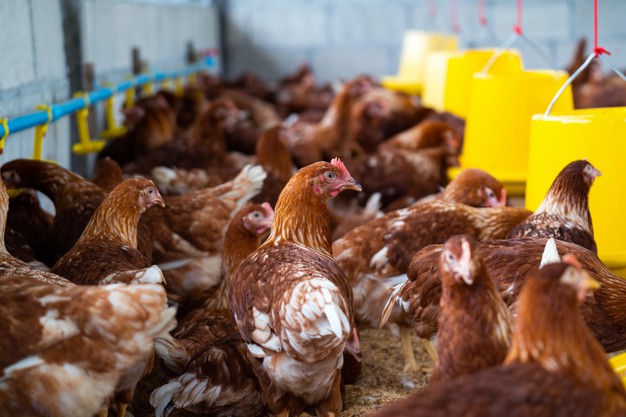
Coccidiosis is a common parasitic disease affecting various animals, caused by microscopic organisms known as coccidia. While coccidiosis can impact several species, including birds, livestock, and even humans, it is particularly prevalent in poultry, causing significant economic losses in the poultry industry. In this article, we’ll delve into the causes, symptoms, and effective solutions to manage and prevent coccidiosis.
Causes of Coccidiosis:
Coccidia are single-celled parasites that multiply in the intestinal tracts of animals, leading to coccidiosis. The disease spreads through the ingestion of oocysts, which are shed in the feces of infected animals. Factors contributing to coccidiosis include:
- Overcrowding: High stocking density increases the likelihood of oocyst transmission among birds.
- Poor Sanitation: Dirty and damp conditions provide an ideal environment for the survival and transmission of coccidia.
- Stress: Environmental stressors, such as sudden changes in temperature or inadequate nutrition, weaken the immune system, making birds more susceptible to infection.
- Contaminated Equipment: Oocysts can persist in the environment, contaminating feeders, waterers, and other equipment.
Symptoms of Coccidiosis:
Identifying coccidiosis in poultry is crucial for timely intervention. Common symptoms include:
- Diarrhea: Blood-tinged or watery feces is a typical sign of intestinal damage caused by coccidia.
- Weight Loss: Infected birds may exhibit reduced growth rates and weight loss.
- Dehydration: Severe cases can lead to dehydration due to fluid loss from diarrhea.
- Reduced Feed Intake: Birds may show decreased appetite and reluctance to eat.
- Ruffled Feathers: General lethargy and unkempt appearance are common signs.
Effective Solutions for Coccidiosis Management:
- Coccidiostats: These are medications specifically designed to control coccidiosis. They can be provided in the feed or water to prevent and treat infections.
- Improved Sanitation: Regularly clean and disinfect poultry houses, equipment, and feeders to minimize the environmental load of coccidia.
- Probiotics: Promoting a healthy gut microbiota can enhance the bird’s natural defenses against coccidiosis.
- Rotational Grazing: For free-range poultry, implementing rotational grazing practices can reduce the risk of exposure to contaminated environments.
- Nutritional Management: Ensure a balanced diet with proper nutrients to support the bird’s immune system.
- Selective Breeding: Some poultry breeds exhibit natural resistance to coccidiosis. Selective breeding for resistance can be a long-term strategy.
- Early Detection and Treatment: Regular monitoring for symptoms, coupled with prompt diagnosis and treatment, is essential for minimizing the impact of coccidiosis.
In conclusion, coccidiosis poses a significant threat to poultry health and productivity. A holistic approach involving preventative measures, proper hygiene, and veterinary guidance is essential for effective coccidiosis management. By understanding the causes and implementing targeted solutions, poultry farmers can mitigate the impact of this parasitic disease and maintain a healthy flock.





